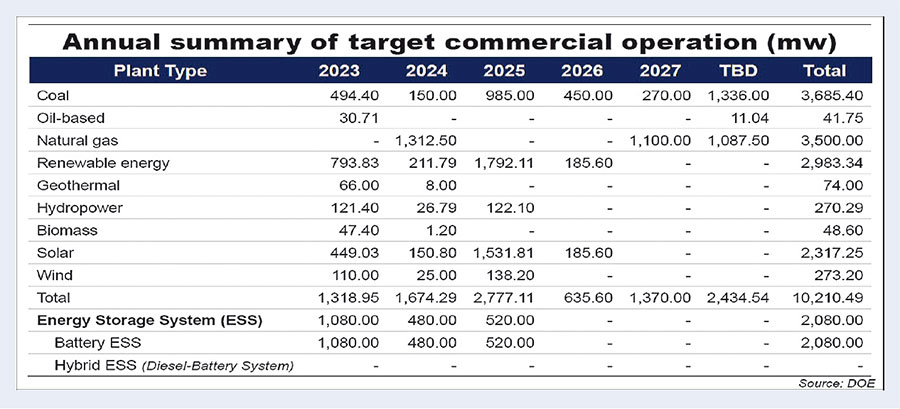The Department of Transportation (DOTr) is looking at private sector support in pursuing the construction of four major railway projects in Luzon and in Mindanao.
The four railway projects under construction which are targeted to be completed from 2024 to 2028 are: Metro Manila Subway, Light Rail Transit (LRT) line 1 extension to Cavite, Metro Rail Transit (MRT) line 7 and the North and South Commuter Rail project.
Jaime Bautista, DOTr secretary, said at the Philippine IATA Agents Travel Association event recently,other major rail projects are undergoing feasibility study or approval from the National Economic and Development Authority.
“We are looking for private investors for such projects, such as the PNR (Philippine National Railways) North Long-Haul that will link Metro Manila to the Ilocos and Cagayan regions; the South Long-Haul project that goes all the way to Bicol; the Subic-Clark Railway; and the Mindanao Railway project, a hybrid passenger and freight line that will be the first railway in Mindanao,” Bautista said.
Last Friday, DOTr secured from the Public-Private Partnership Center Project Development and Monitoring Facility Committee P100 million funding each for the feasibility studies of the 17-kilometer San Mateo Railway and 54.8-km Northern Mindanao Railway projects.
Once the studies are completed, the projects will be submitted to the Investment Coordination Committee for approval, to confirm their viability for public-private partnership (PPP) implementation.
These two projects are planned to be undertaken using the PPP scheme via solicited mode.
While these transport projects will be developed, financed, operated and maintained by the private sector, they will be owned by the Philippine government as mandated under the existing Build-Operate-Transfer Law.
San Mateo Railway involves the financing, design, construction and operation and maintenance of the project. It will run from Marikina City to San Mateo and Rodriquez in Rizal, with six stations traversing mostly parallel to the riverbanks.
The proposed Northern Mindanao Phase 3 is a 54.8-km segment of the Mindanao Railway System spanning across the highly urbanized city of Cagayan de Oro, connecting the municipalities of Laguindingan and Villanueva, Misamis Oriental.
The whole Mindanao Railway is a 1,544-km train system that will span the entire island of Mindanao. It aims to improve efficiency of transport and connectivity to major cities and other gateways in the island.
Meanwhile, Bautista is expected to decide soon on the pending fare hike petitions for the MRT-3, LRT-1 and LRT-2, after all position papers and manifestations have been submitted to the Rail Regulatory Unit today.
At the public hearing last Friday, petitioners for the train fare adjustments — Light Rail Manila Corp. (LRMC) for LRT-1, Light Rail Transit Authority (LRTA) for LRT-2 and DOTr for MRT-3 — claimed revenues to be generated from the fare adjustment will directly finance improvement, rehabilitation and maintenance of their facilities and rolling stocks, aside from other social services they can extend to commuters.
Particularly for the DOTr-MRT, the approval of the fare adjustment will unburden the national government of the P1-billion subsidy to the rail line that can be used to expand its social services and other priority projects that directly benefit the poor.
“We could forego with the P1 billion annual subsidy for the national government to realign to other priority projects,” said Federico Canar Jr., MRT-3 general manager.
Hernando Cabrera, LRTA administrator, for his part, sees that the increase in train fare will enable LRT-2 to further improve train services and provide more comfort and convenience to the riding public, even as the last adjustment was enforced in 2015.
For Jimmy Santiago, LRMC general counsel, the approval of the train fare adjustment will further expand the operational capacity of the company which, at present, “smoothly handles the operation of its 104 train units running daily.”
Santiago said LRMC was able to build Package 1 of the LRT-1 Cavite extension, which includes a viaduct and five stations, amid the government’s denial to its several applications for fare adjustments since 2015.
Among the stakeholders opposing the fare hike are Bagong Alyansang Makabayan or Bayan, labor alliance Kilusang Mayo Uno, National Center for Commuter Safety and Protection Inc., National Union of People’s Lawyers, Kabataan and Akbayan as well as other civil society organizations.





